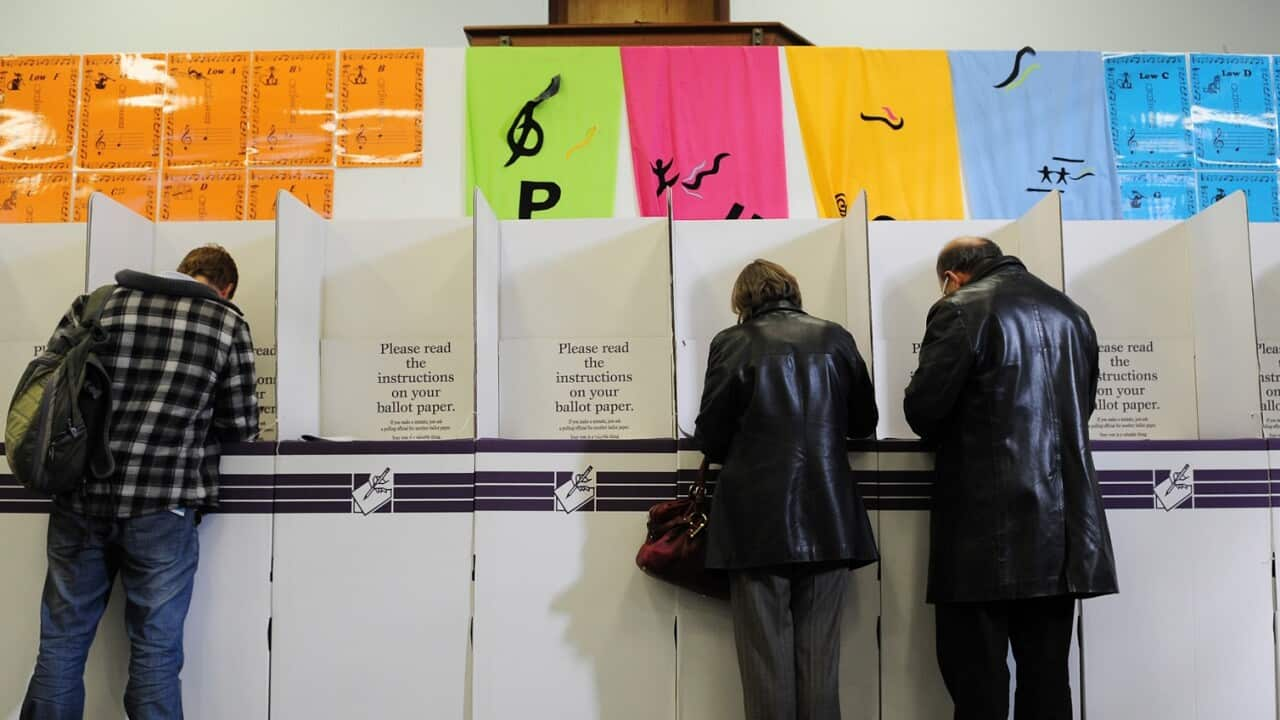The federal government has dropped a push to pass its hugely controversial voter identification reforms before the next election.
It came just hours after key crossbench Senator Jacqui Lambie revealed she would vote against the proposal, essentially putting it on its last legs in the upper house.
The legislation would force voters to present a form of ID at polling stations and rewrite current rules asking people to provide their name and address.
The changes have been labelled and “a solution looking for a problem” amid fears it would suppress and disenfranchise voters from Indigenous and , as well as others who may have trouble providing acceptable ID.
SBS News understands the government agreed to drop its push to pass the legislation before the next election in exchange for Labor's backing of its political campaigners bill.
That bill lowers the threshold for disclosure of political spending by "political campaigners", such as includes charities, from $500,000 to $100,000.
Independent Senator Rex Patrick said in a tweet said the move “sold out the charities sector”.
Liberal MP Jason Falinski on Wednesday afternoon confirmed the government would not look to rush the voter ID bill through parliament ahead of the next election and had spoken to Special Minister of State Ben Morton about it.
“Even if we were able to pass it early next year, it wouldn't give the Australian Electoral Commission enough time to implement it, so is not something that we'll be [doing before] the 2022 election,” he told the ABC.
Mr Falinski said he could see how people could become disenfranchised if the bill was rushed through.
“If the Electoral Commission had been asked to implement something of this nature very quickly, there would have been, there was a high potential of mistakes that have been made," he said.
“I think it's a reasonable thing for the government to do to take it off the table and to come back to it after the next election so that it can be implemented properly and fully with due consultation with groups that may find themselves more likely to be adversely affected by it.”
Labor, the Greens and Senator Patrick do not support the reforms, while One Nation does.
Centre Alliance senator Stirling Griff has said he wants amendments to the current legislation and generally supports the principle of voters needing to identify themselves.
The government has said the legislation is designed to prevent voter fraud, and more safeguards are needed to protect against people voting multiple times.
Australian Electoral Commissioner Tom Rogers told the Senate last month voter fraud is a “vanishingly small” issue in the country.
There were just 2,102 cases of multiple marks against votes at the last election from around 15 million voters, according to data from the Australian Electoral Commission.
Of those, 24 were investigated by police and there were no prosecutions.











